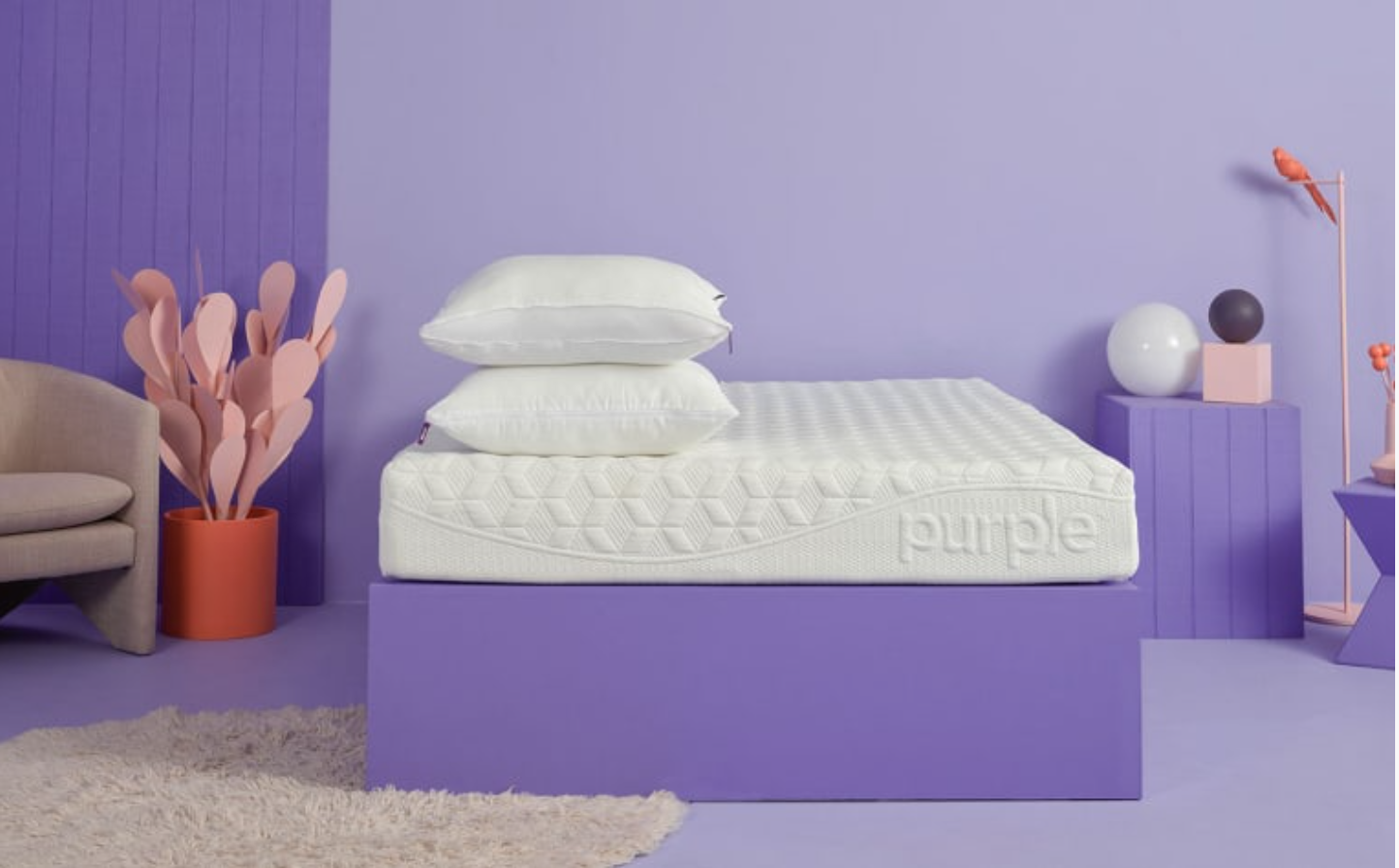Everyone knows how wonderful it feels to wake up after a refreshing sleep. But you may not know just how critical getting a full night of sleep is to your health and to achieving optimal mental performance. In this post, we're going to give you a sense of why sleep is so important to your brain, and offer some actionable sleep tips and tricks that will help you wake up feeling amazing.
Why Sleep Matters So Much to Your Brain-Mind Performance
Neuroscientist Jeff Iliff explains that sleep and sleep quality are essential to maintaining brain function. The intense electrical activity undertaken by the brain consumes one-quarter of the body's entire supply of energy. Consuming that much energy means that clearing waste from the brain is a major challenge. It's the clear cerebrospinal fluid (CSF) that meets this challenge, flushing wastes from throughout the brain and moving it into the blood. However, this only happens in the sleeping brain—never during waking hours.
Sleep Tips And Tricks That Work
So, how to improve your quality of sleep? These tips and tricks are based on current neuroscience and can help you train yourself into more, higher quality sleep.
The Right Amount of Sleep
How much sleep is right varies, but for most people seven to nine hours nightly is optimal. Use trial and error to find your sweet spot. Your goal is to wake up feeling refreshed, without caffeine or other stimulants, and to feel alert throughout the day. Remember, the demands you place on yourself all day might change how much sleep you need.
Hello, Darkness
Sleep in darkness that's as complete as possible. Humans evolved to sleep in darkness, without the constant humming of electric lights of today. If light seeps through your windows, try blackout shades.
Aim to keep your electronics, which emanate blue light, dark when you sleep. If you can't, cover your eyes with an eyeshade.
I sleep pitch black, with a gentle airflow in a cool room with no noise. Bliss!- Alex Fergus, Health and Fitness Coach
The Manta Sleep Mask is top notch. 100% blackout with no pressure on the eyes.
Create a Transition Time
After sunset, dim all the lights in your house so you don't artificially wake yourself at the wrong time. Install dimmer light switches if you can.
Avoid using electronics before bed. If you want or need to watch an electronic screen before bed, you can wear blue light blocking glasses or use a night lighting setting that's amber rather than blue. Use a tool like f.lux software which reduces the blue light spectrum your computer emits automatically after sunset.
Finally, create a routine during your wind down time. Read using light that isn't blue, listen to a podcast or an audiobook, or listen to soothing music.
Prior to bedtime, I like to unwind by listening to classical music while reading. Before going to bed, I update my "to-do" list for the next day and process the day I had. During that practice, I acknowledge three good things that happened and reflect on what I’m grateful for.
The Luna Red Nightlight is a great option for a flashlight without getting exposure to blue light.
Cool Off
Your body must be cool and able to control its own temperature to initiate sleep, reach deeper levels of sleep, and stay asleep consistently. Sleeping in a cooler room with linens to cover your body is the best way to achieve this. The National Sleep Foundation recommends 60 to 67 degrees for optimal sleep, or try a mattress chilling pad.
The first step for me is to ensure the temperature is ideal. I tend to like it colder, so 60 to 65 works best. I also use a Chili Pad to help with this.
The ChiliPad OOLER is a sleep system with a hydro-powered thermal range that operates from 55-115°F (13-46°C)*. Get 25% off by clicking here and using code NEUROHACKER25 at checkout.
Keep it Down
For most of us, absolute silence isn't necessary for sleeping—but avoiding loud, startling noise is. If you need to, try wearing soft foam earplugs to bed, or use a box fan or white noise machine as you sleep.

Optimize Your Comfort
Choose a mattress and pillows that are comfortable. This can take more trial and error; a mattress that's perfect for someone else might be terrible for you.
The Purple® Mattress uses a technology eliminate pressure points and allow airflow so you sleep cool and comfortable. Check it out here.
Stick to a Schedule
Going to bed at the same time every night should be part of your routine, even on weekends. This allows you to harness the force of your body's own circadian rhythms. Daily exposure to sunlight in the morning also helps anchor your body's natural biological clock.
I believe the best natural remedy is to maintain a consistent sleep-wake schedule. Of course, the modern lifestyle throws myriad variables at us that make it difficult to adhere to this. So, I've found breathing exercises and meditation to be essential.

Avoid Napping Regularly
If you get all the sleep you need at night, your body and mind will feel sleepy at bedtime and alert during the day. If you nap regularly, your body learns that it's okay to get tired during the day, and there's no need to get all the sleep you need at night.
If your schedule is unusual and you really need routine naps or to catch up on the weekend occasionally, take them. Just make sure you nap for under an hour.

Exercise Early
The more mentally and physically active you are during the day, the better you will sleep at night. Intense exercise within a few hours of bedtime can disrupt sleep. And although it can be tempting when you're busy, never skip sleep to work out.
Here's my tip, no heavy exercise within 2 hours before bed.

Blue Light Therapy
If you tend to have a midday slump, blue light therapy can help pick you up. Or, go outside and get some natural light, preferably with a brief but brisk walk.
Making sure to get sunlight during the day & wear blue blockers at night is a game changer.

Sleep Tracking
You may think you're getting more sleep than you are—or maybe you're just waking up more than you've noticed. Use a tool like Beddit to track your sleep so you understand your unique sleep patterns and can find more effective ways to solve them.
I use the Whoop strap to track sleep. It shows my HRV, RHR and estimated sleep time including sleep cycles along with a cardio readiness score for the upcoming day.
![]()
Keep a Journal or a List
For many people, it's the long list of undone tasks that keeps us awake. This constant thought churning keeps the mind awake, so stop the process by keeping a journal or list of tasks. Once you've noted everything down, your mind doesn't need to juggle the information constantly, so you can let it go and get to sleep.
I suggest not engaging your brain in any stimulating mental activity, especially tasks that cause stress, within 2-3 hours of bedtime. Instead use this time as an opportunity to wind down and partake in rejuvenating activities such meditation, journaling, and preparing for a successful start for the following day.

Nutritional Support for Better Sleep
Obviously, food and drink that contains caffeine or other stimulants can impair your ability to sleep. Research also shows that eating foods high in fiber throughout the day contributes to deeper slow-wave sleep. On the other hand, foods high in saturated fats cause less slow-wave sleep and more sleep fragmentation.
You can upgrade your evening routine by taking Qualia Night with dinner. It contains polyphenols and other compounds that feed healthy gut bacteria, supporting gut microbiota and the gut-brain axis, which is critical for healthy brain and immune function. Our team of scientists and doctors looked to research and clinical studies to determine which ingredients would naturally support the body’s restorative capabilities.
No matter what you're eating, avoid eating too much of it within two hours of going to bed. Big meals can disrupt sleep, not to mention causing indigestion. Alcohol and nicotine within six hours of bedtime can also disturb your sleep.

No alcohol within two hours of bedtime. I avoid heavy meals and focus on reducing high glutamatic acid foods at night.
Take a Sauna or Hot Bath
People use saunas to relax, recover from intense physical activity and for a plethora of potential health benefits. If you can't take saunas, take a hot bath. Once you leave the heat, your core temperature will drop, helping you sleep.
I recommend always taking a shower or bath before bedtime. It's non-negotiable for me.

Meet Our Comprehensive Sleep Support Stack - Qualia Night
The perfect night of sleep shouldn't feel like your white whale. We created the first “smart sleep supplement” to promote — not override — your body’s natural sleep processes.
What makes Qualia Night different? Qualia enhances sleep performance, empowering your body’s ability to heal, recover, and regenerate better night after night. Qualia Night is a whole-system solution to support deep sleep, cognition, immunity, and long-term sleep performance.
How does it do this? By enhancing BDNF, promoting GABA, balancing cortisol levels, and supporting gut microbiome health through a high purity blend of polyphenols, neuro-lipids, herbal adaptogens, therapeutic mushrooms, nootropics, Ayurvedic Rasayanas, superfoods, and cellular antioxidants. Experience your sleep optimized. Experience Qualia.
If we find a product or service we love, we want to share that with our community. In some of these cases we will partner with the provider in an affiliate relationship which may result in a payment or benefit to Neurohacker Collective. We won't ever enter into such an arrangement or recommend any product or service we haven't researched or stand behind.
All content provided on this website is for informational purposes only. This information is never intended to be a substitute for a doctor-patient relationship nor does it constitute medical advice of any kind.













No Comments Yet
Sign in or Register to Comment